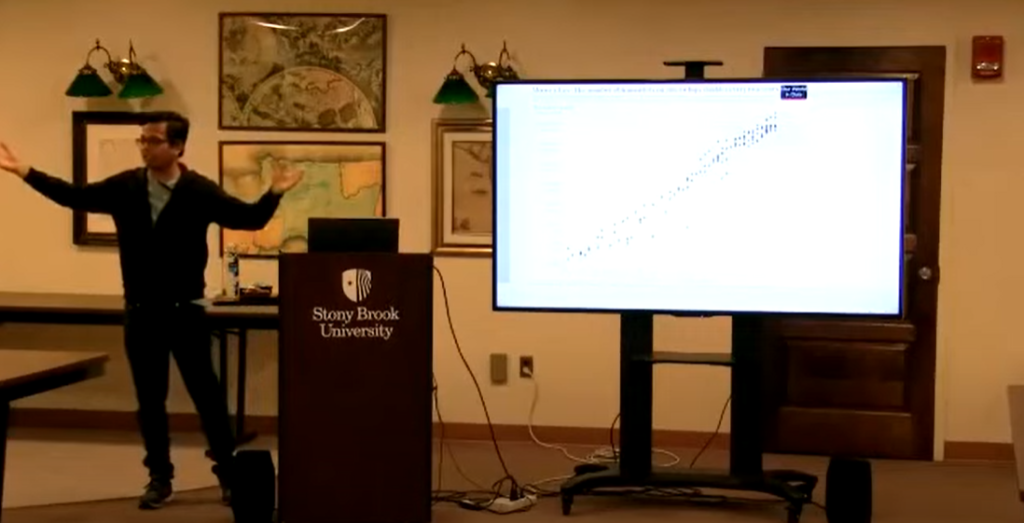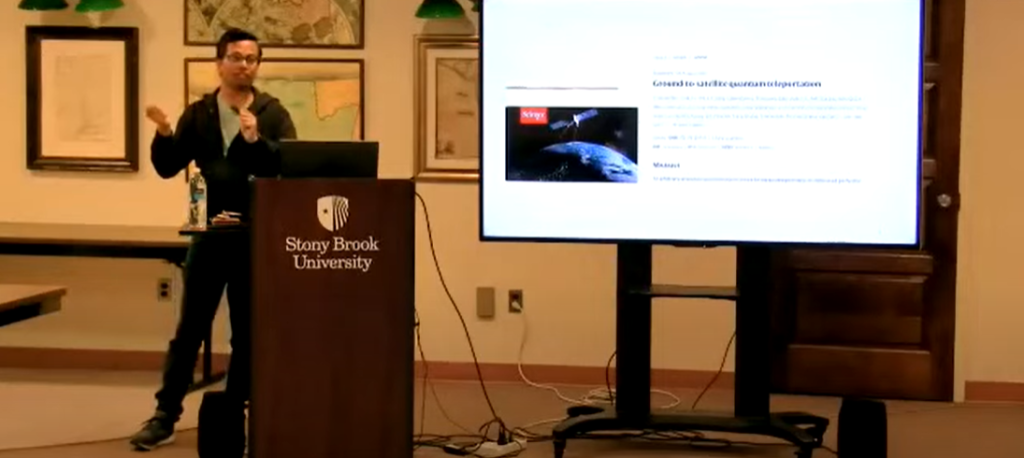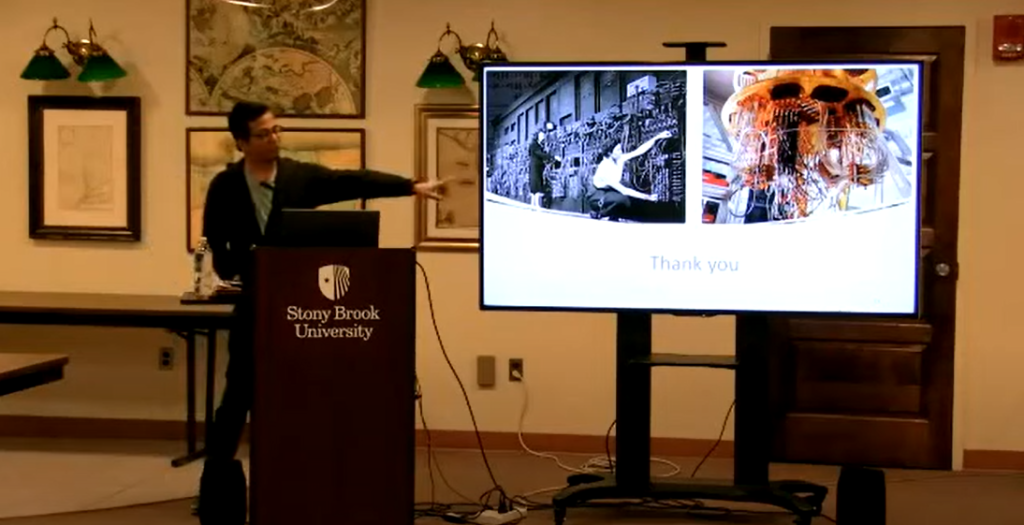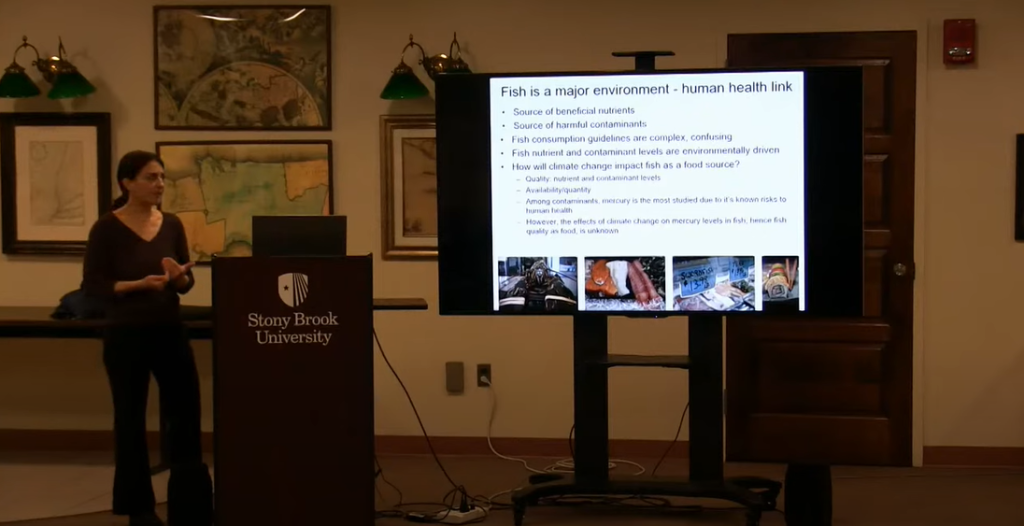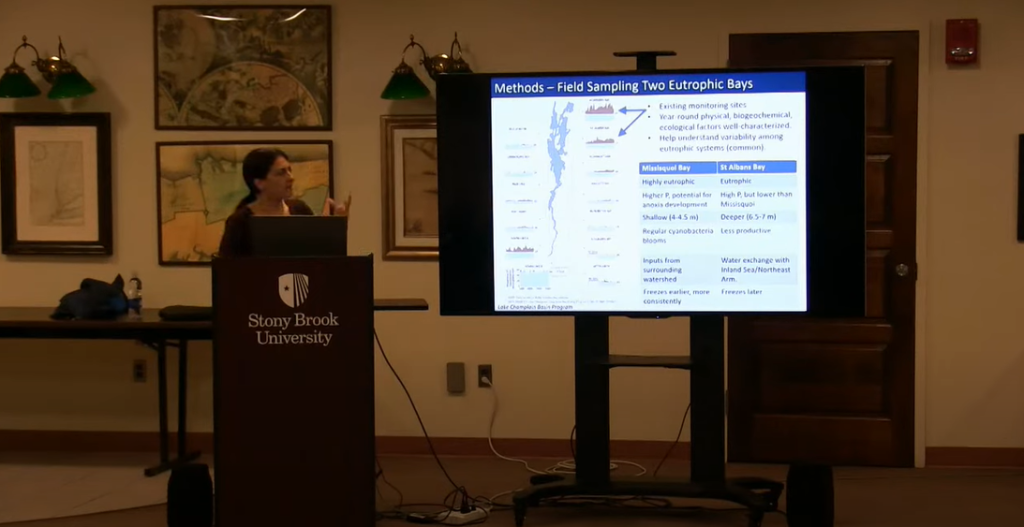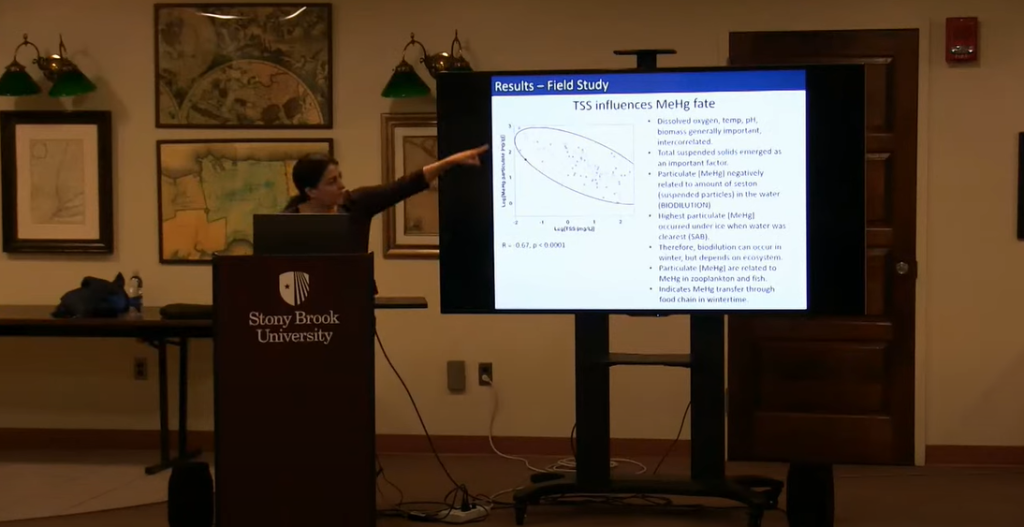1) On April 11, 2023: Dr. Supartha Podder on “Understanding quantum computing advantages”
During the lecture, Dr. Supartha Podder discussed that a supercomputer, which is a classical computer, is very powerful, but it cannot simulate larger systems. Building a computer based on quantum mechanics would be ideal for solving very complex problems in a much faster way. Quantum computers are useful in quantum simulation, practical quantum advantage, networks and cryptography, and machine learning. However, there is a need for global structures for super-polynomial quantum speedups.
Dr. Podder also tossed a coin to demonstrate the concept of probabilistic computation. Additionally, he explained what quantum registers and quantum witnesses are in quantum computing. Although this technology is still in its early stages, many companies such as IBM and Google have already been rapidly developing quantum computers in recent years.
The engaging lecture attracted many thought-provoking questions from students and faculty during and after the lecture.
2) On May 2, 2023: Dr. Roxanne Karimi on “Winter mercury patterns in lake ecosystems and our future environmental health risks”
Dr. Karimi discussed environmental health, which is influenced by ecological and environmental factors that impact environmental pollution levels and impact human health and levels of human exposure to toxins. Microbes make the conversion of mercury (Hg) to a toxic form of mercury, methylmercury (MeHg) possible in aquatic food chains. However, the effects of climate change on mercury levels is unknown. Fish are an environmental health conundrum, but we can balance and optimize the nutrition benefits of consuming fish.
Dr. Karimi also mentioned that her research team used search terms: “mercury” and “fish” or “mercury” and “lakes” on the Web of Science database and found that search results since 1990 onwards had not provided insight into mercury patterns in lakes during winter. She further discussed their field sampling of two Lake Champlain basins to study mercury levels in winter compared to other seasons’, and their survey targeting anglers in Lake Champlain region to study fish consumption by recreational and subsistence anglers.
The lecture was very intriguing, and interesting questions were raised by students and faculty.
- “The many complicated ways how ice forms in the atmosphere” - September 20, 2023
- 2023 Fall Semester: Reference and Virtual Chat Services - August 25, 2023
- Survey re: Public Library Services and Community Needs During Extreme Events - June 14, 2023

